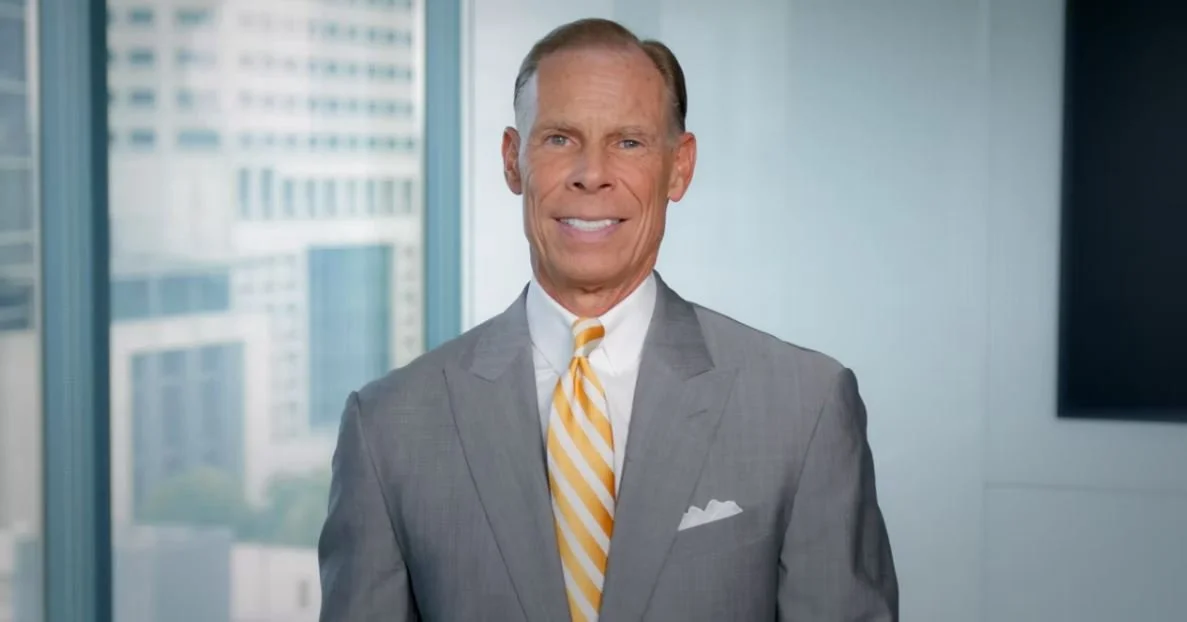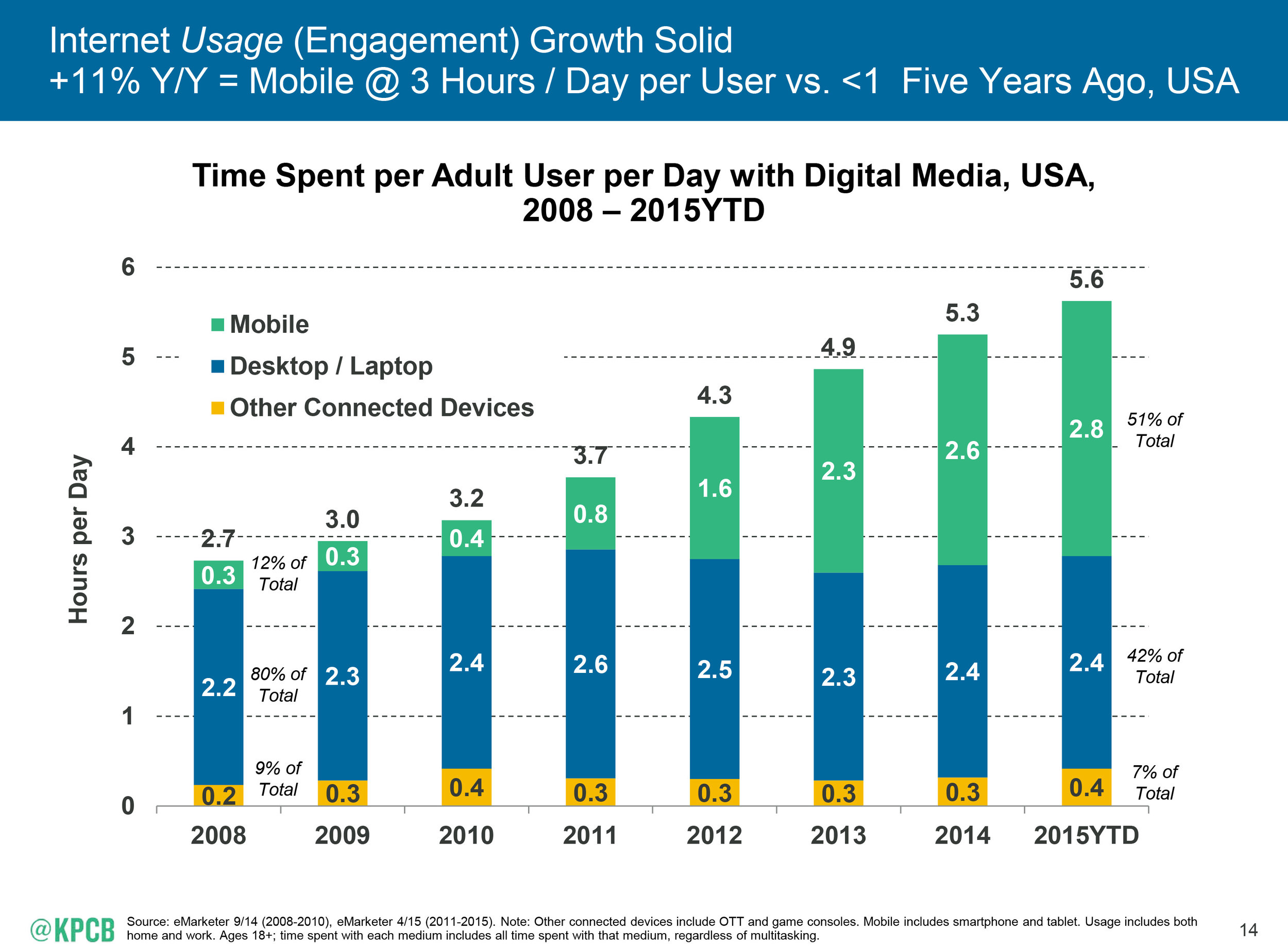 by Jason Norris, CFAExecutive Vice President of Research
by Jason Norris, CFAExecutive Vice President of Research
For technology junkies, the Re/code conference in Southern California is one of the highlights of the year. It is a broad mix of public and private companies speaking on innovation today and what the future holds -- from automobiles and wireless to media and culture.
One of the most popular segments of the conference is Mary Meeker’s annual presentation of internet trends. Meeker is a partner at venture firm Kleiner Perkins; however, her thrust into the spotlight came about 20 years ago when she was an internet analyst for Morgan Stanley. The key point to her 190+ page slide deck was that the internet is still in its very early stages and mobile is becoming more of a dominant aspect of the web. While the consumer and businesses have been pushing the internet, there are several other areas of the economy where opportunities are still great. Government, education and healthcare are just a few examples of sectors that have not yet fully leveraged the internet.
As users, traffic, and transactions increase online – security becomes more of a focus. What has been a common news event of late, there are breaches at various institutions that can put both individuals and those entities at risk. The IRS unfortunately is the most recent institution to be significantly impacted. As more people connect to mobile devices, security and encryption are even more essentials. The chart below highlights time spent with digital media on different devices.
Accessing digital media continues to grow at a double-digit rates and the growth is primary coming from mobile. This growth in connectivity globally continues to benefit companies such as Apple, Samsung and Avago.
Increased transactions as well as a growth in private information shared digitally, specifically wirelessly, does increase the need for better security, as well as the opportunity for companies to analyze consumer behavior and offer personalized deals. These trends have resulted in chief information officers (CIOs) to forecast security and analytics spending to continue to increase as a percentage of information technology (IT) spending. Morgan Stanley released a survey earlier this week highlighting a 210 bps increase in the growth of network security spending in 2015 (12.8 percent up from 10.7 percent). To put in perspective, overall IT spending usually grows in the low-to-mid-single digits. Some beneficiaries of this trend would be Cisco, Checkpoint and Palo Alto Networks.
Watch What You Do
As consumer utilize more wireless devices and with the most recent launch of the Apple Watch, some legal issues become a bit fuzzy. In several states, it is against the law to use your wireless handset while driving. What if you are using your watch? This was the case in Quebec earlier this month where a watch owner was fined $120 for operating his watch while driving. As devices become more integrated, especially in cars, safety regulators are going to have a tough time keeping up.
Our Takeaways for the Week
- Mobile is becoming the dominant means of interent access
- Cybersecurity will be a theme for years to come







